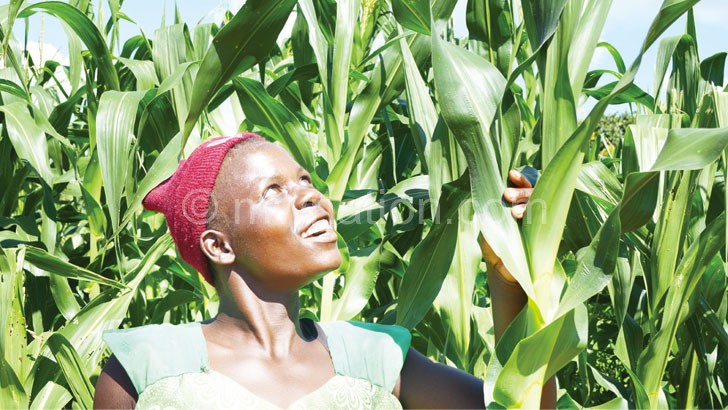Pre-harvest losses estimated at 40 percent, says expert
Poor agronomic practices are contributing to Malawi farmers losing five tonnes or about 40 percent on average, per hectare of maize, an agriculture expert has said.
This is on top of the 30 percent post-harvest losses that occur due to poor storage facilities, which means that farmers lose a huge amount of crop before they even start to consume it.

Experts say maize yields differ according to varieties, but some high-yielding varieties produce up to 12 tonnes per hectare.
In response to a questionnaire on pre-harvest losses in Malawi, Chitedze Agricultural Research Station director Wilkson Makumba said late planting, low application of fertiliser, late weeding and pest and disease manifestation are some of the poor agronomic practices leading to decline in potential yields even in the face of good rainfall.
He said: “Late planting can lead to 25 percent decrease while late and low fertiliser application leads to losses of between 40 and 60 percent depending on soil type and organic matter levels. Low nitrogen content can cause up to 85 percent kennel abortion in the first 20 days after silk emergence.”
According to Makumba, pests and diseases can reduce yield by about 16 percent in mild attacks and 100 percent in severe cases while weeds can reduce yield in the range of 30 to 100 percent.
Farmers Union of Malawi (FUM) president Alfred Kapichira Banda attributed poor agronomic practices to poverty, saying that even poor farmers who are supposed to benefit from interventions such as the Farm Input Subsidy Programme (Fisp) suffer from pre-harvest losses.
“They get seed and fertiliser late, which contributes to late planting and late application of fertilisers. At the moment, some are spending days on end to get relief items so they have little or no time to tend their crops,” he said.
Agreeing with Kapichira Banda, Civil Society Agriculture Network (CisaNet) executive director Tamani Nkhono-Mvula, said high cost of inputs deters many farmers from maximising yields.
“Famers do not apply the recommended rate of fertiliser per hectare because the soil is highly eroded and it needs heavy use of fertiliser which is expensive as a result they just apply what they can afford,” he said.
Nkhono-Mvula said many farmers hardly access extension service. n




